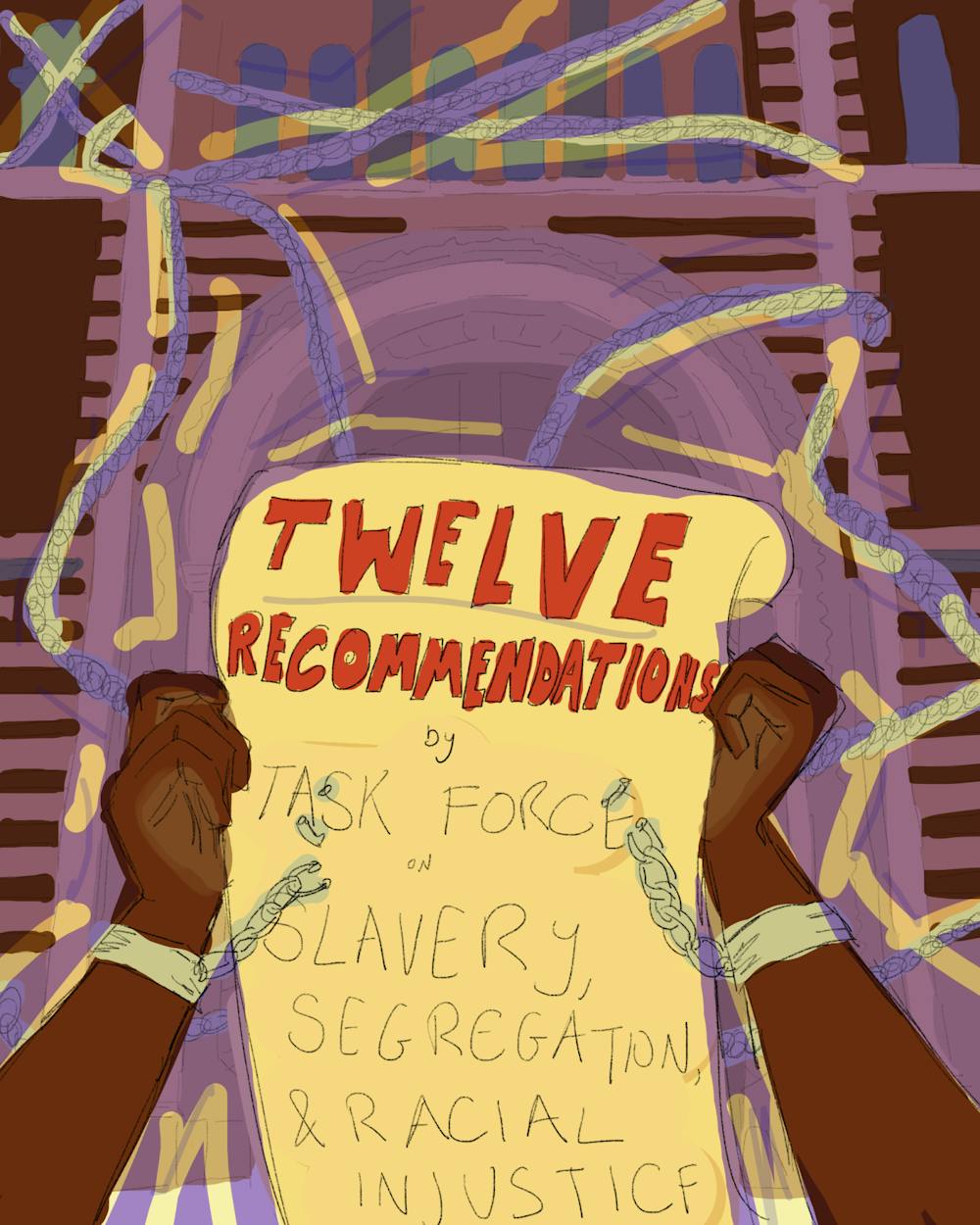Task Force on Slavery, Segregation and Racial Injustice releases final report

The Rice Task Force on Slavery, Segregation and Racial Injustice released its final report and recommendations for the university after four years. Originally commissioned in 2019 by then-President David Leebron, the task force has conducted historical research, hosted webinars and updated the Rice community on its endeavors.
In its final report, the task force found that the university’s founding was inextricably linked to slavery, segregation and racial injustice. The process of desegregation was a slow transformation, resisting change, and the university still has much work to do in terms of promoting inclusivity, the report said.
Alexander Byrd, the vice provost for Diversity, Equity and Inclusion and co-chair of the task force, said the report relied heavily on members of the Rice community.
“A remarkable group of students, staff, faculty and alumni provided leadership for this endeavor over the last four years,” Byrd said.
According to W. Caleb McDaniel, the Mary Gibbs Jones Professor of Humanities and co-chair of the task force, the research was expansive in its effort to assess the history of both slavery and segregation at Rice.
McDaniel and Byrd said assessing Rice’s history and entanglement with slavery is critical to Rice’s ability to handle issues today.
“The way of taking the history of the university most seriously is being open to its consequence in the present,” Byrd said.
President Reggie DesRoches said the report will help guide policies for the ongoing effort to make Rice more inclusive.
“Rice’s commitment to diversity is strong and unwavering and particularly important as we adapt to the Supreme Court’s recent ruling on affirmative action,” DesRoches wrote in an email to the Thresher.
The report also focused on desegregation in Texas broadly, highlighting how pivotal events such as Heman Sweatt’s lawsuit against the University of Texas at Austin took place in this state.
For the future, the task force gave recommendations to the university such as promoting socioeconomic diversity, investing in the Center for African and African American Studies, commissioning a group to improve diversity in the residential college system and continuing to study Rice’s historical entanglement with racial injustice. According to Byrd, these recommendations will take time to implement.
“There are no quick fixes to the issues that we’ve raised in this work,” Byrd said.
Now that the task force has concluded its research, the chairs said they look forward to seeing the impact on the Rice community.
“This conversation is opening up beyond the group we assembled in our steering committee,” McDaniel said.
Chase Brown, a co-president of the Black Student Association, said the task force did a good job analyzing the history of the university, which Brown said should be included in the Critical Dialogues on Diversity workshop for first-year students.
“I think that’s really important to show and let people know that this is the institution that we’re building off of,” Brown, a Wiess College senior, said.
Angelina Hall, a former Diversity Facilitator Coordinator and co-president of BSA, said she was impressed by the solutions recommended by the task force. In particular, Hall said she supports having a Black cultural space and has seen a need for more tenured Black professors.
“I’ve been here for eight semesters now, and I’m just now having my first Black professor,” Hall, a Brown College senior, said.
Brown said that she has seen some improvements in making Rice more welcoming to people of color as a student fellow at the Multicultural Center.
“I’ve noticed an increase in [diversity-related] events and a desire to attend events,” Brown said.
DesRoches said that students should take the time to reflect upon the task force’s report.
“One of the lessons for all of us,” DesRoches wrote, “is that we all have the opportunity to make our mark on history and help shape it.”
More from The Rice Thresher

Rice to support Harvard in lawsuit against research funding freeze
Rice, alongside 17 other research universities, filed an amicus curiae brief in support of Harvard University’s lawsuit against the Trump administration over more than $2 billion in frozen research grants.

Mayor Whitmire discusses ‘the state of Houston’ between audience protests at Baker Institute
John Whitmire’s remarks on the city’s budget, transportation and infrastructure were interrupted twice by shouts from audience members at a Baker Institute event May 29. At the event, which was open to the public, Whitmire spoke about the current state of Houston alongside former county judge Ed Emmett.
Rice reaffirms support for international students after Trump administration targets Harvard
Rice and the Office of International Students and Scholars said in a May 23 email that they are monitoring the Trump administration’s actions towards Harvard to bar the school from enrolling international students. A federal judge temporarily halted the move less than 24 hours later.


Please note All comments are eligible for publication by The Rice Thresher.